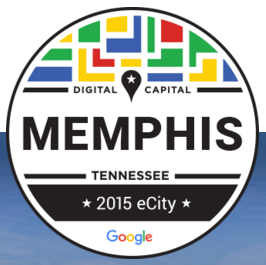
Google has named Memphis its Tennesssee eCity for 2015, and cited the research of the Center of Excellence for Mobile Sensor Data-to-Knowledge (MD2K) as one of the reasons.
“Memphis is a musical city—it's the birthplace of the blues and rock and roll and a hotspot for country. The city also has a technology focus—the University of Memphis has a specialty in sensor research and has pioneered fully-reconfigurable modular body-worn sensors for easy and portable vitality, cardiac, and neurological monitoring,” Google said of Memphis.
The sensor research the Google refers to is being conducted by the MD2K Center, headquartered at the University of Memphis. MD2K is one of 11 NIH-funded national Big Data Centers of Excellence awarded by NIH in 2014 as part of its Big Data-to-Knowledge (BD2K) initiative. The team, comprised of top mHealth researchers from 12 universities and the non-profit Open mHealth, is developing tools that will make it easier to gather, analyze and interpret health data generated by mobile and wearable sensors.
This data will then be used to quantify the factors – biological, behavioral, social and environmental – that contribute to health and disease risk. The ultimate goal is to develop timely and personalized mobile health interventions for the early detection and prevention of adverse health events. The center’s work will help realize the vision of Precision Medicine that President Obama proposed in 2015, and which has been funded in the 2016 federal budget.
In addition to the University of Memphis, researchers from Cornell Tech, Georgia Tech, Northwestern, Ohio State, Rice, UCLA, UC San Diego, UC San Francisco, the University of Massachusetts Amherst, the University of Memphis, the University of Michigan and West Virginia University are contributing to MD2K research.
Google rated cities in every state according to the online strength of local small businesses, and the city with the highest scores were designated a Google eCity.

